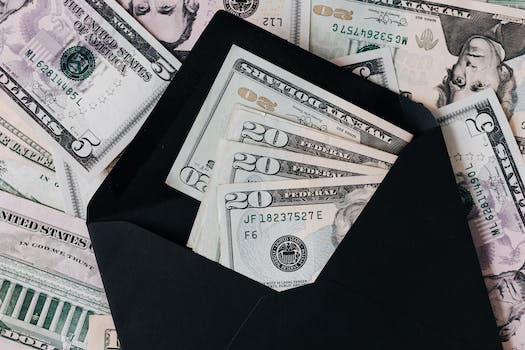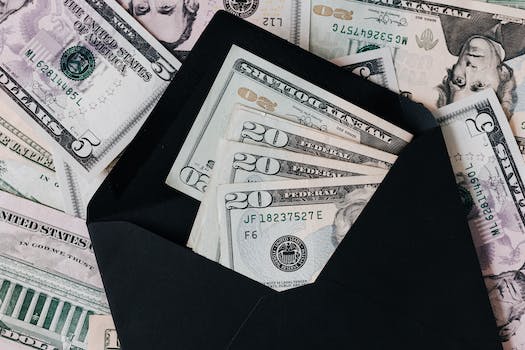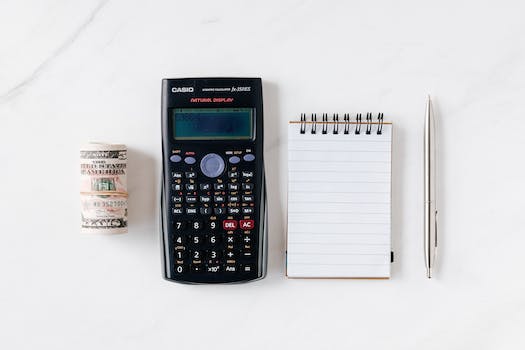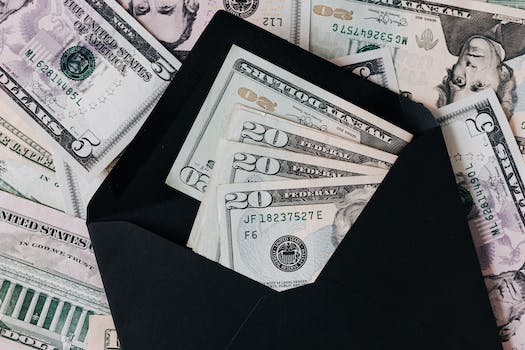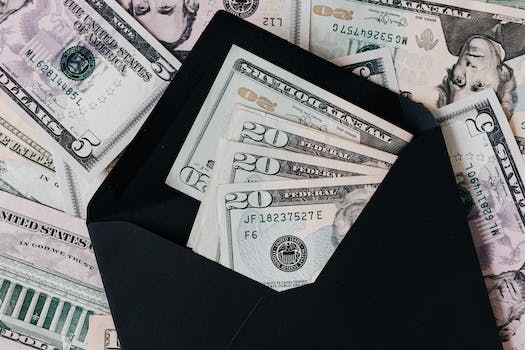Budget How To Save Money Fast
“Maximize your savings with these budget-friendly tips.”
Introduction
Introduction: Budgeting is an essential aspect of personal finance management. It involves creating a plan for your income and expenses to ensure that you are spending within your means and saving for the future. Saving money fast is a common goal for many people, but it can be challenging to achieve without a solid budgeting strategy. In this article, we will explore some tips and tricks for budgeting and saving money quickly.
10 Simple Ways to Cut Your Expenses and Save Money
Budget How To Save Money Fast
Saving money is a crucial aspect of financial stability. However, it can be challenging to cut expenses and save money, especially when you have bills to pay and other financial obligations. Fortunately, there are simple ways to cut your expenses and save money without sacrificing your lifestyle. Here are ten simple ways to cut your expenses and save money.
1. Create a budget
The first step to saving money is to create a budget. A budget helps you track your income and expenses, and it enables you to identify areas where you can cut expenses. To create a budget, list all your income sources and expenses, including bills, groceries, and other expenses. Then, allocate a specific amount of money to each expense category and stick to it.
2. Cut your grocery bill
Groceries are a significant expense for most households. To cut your grocery bill, plan your meals in advance and make a shopping list. Buy generic brands instead of name brands, and avoid buying processed foods and snacks. Also, consider buying in bulk and taking advantage of sales and coupons.
3. Reduce your energy bills
Energy bills can be a significant expense, especially during the summer and winter months. To reduce your energy bills, turn off lights and appliances when not in use, use energy-efficient light bulbs, and adjust your thermostat to a comfortable temperature. Also, consider using a programmable thermostat to regulate your home’s temperature automatically.
4. Cancel subscriptions and memberships
Subscriptions and memberships can add up quickly, and you may not even be using them. Cancel any subscriptions or memberships that you don’t need or use regularly. This includes gym memberships, magazine subscriptions, and streaming services.
5. Use public transportation
If you live in an area with public transportation, consider using it instead of driving. Public transportation is often cheaper than driving, and it can save you money on gas, maintenance, and parking fees.
6. Cut back on eating out
Eating out can be expensive, especially if you do it frequently. Cut back on eating out by cooking at home more often. Plan your meals in advance, and make enough for leftovers. Also, consider packing your lunch for work instead of buying it.
7. Shop around for insurance
Insurance is a necessary expense, but you may be able to save money by shopping around. Compare rates from different insurance companies, and consider raising your deductibles to lower your premiums.
8. Reduce your entertainment expenses
Entertainment expenses can add up quickly, especially if you enjoy going to movies, concerts, and sporting events. To reduce your entertainment expenses, look for free or low-cost activities, such as hiking, biking, and visiting museums. Also, consider renting movies instead of going to the theater.
9. Sell unused items
If you have unused items lying around your house, consider selling them. You can sell items online or at a garage sale. Not only will you make some extra money, but you’ll also declutter your home.
10. Avoid impulse purchases
Impulse purchases can be a significant drain on your finances. To avoid impulse purchases, make a shopping list before you go to the store, and stick to it. Also, wait a few days before making a purchase to determine if it’s something you really need.
In conclusion, cutting expenses and saving money doesn’t have to be difficult. By creating a budget, cutting your grocery bill, reducing your energy bills, canceling subscriptions and memberships, using public transportation, cutting back on eating out, shopping around for insurance, reducing your entertainment expenses, selling unused items, and avoiding impulse purchases, you can save money and achieve financial stability.
Creating a Realistic Budget: Tips and Tricks
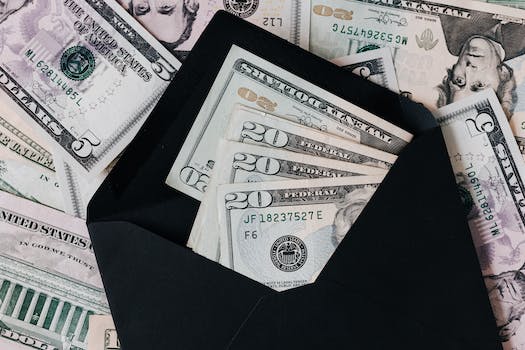
Budgeting is an essential part of managing your finances. It helps you keep track of your expenses and ensures that you have enough money to cover your bills and save for the future. However, creating a budget can be challenging, especially if you’re not used to tracking your spending. In this article, we’ll provide you with some tips and tricks on how to create a realistic budget and save money fast.
The first step in creating a budget is to determine your income. This includes your salary, any bonuses or commissions, and any other sources of income. Once you have a clear idea of how much money you’re bringing in each month, you can start to allocate your funds.
The next step is to track your expenses. This means keeping track of everything you spend money on, from your rent or mortgage payment to your morning coffee. You can use a spreadsheet or a budgeting app to help you keep track of your expenses. Be sure to include all of your bills, as well as any discretionary spending, such as entertainment or dining out.
Once you have a clear idea of your income and expenses, you can start to create a budget. Start by prioritizing your bills and expenses. This means making sure that you have enough money to cover your rent or mortgage payment, utilities, and other essential bills. Then, allocate funds for discretionary spending, such as entertainment or dining out.
One of the best ways to save money fast is to cut back on discretionary spending. This means reducing the amount of money you spend on non-essential items, such as clothing, entertainment, and dining out. You can do this by setting a budget for these items and sticking to it. For example, you might decide to limit your dining out to once a week or to only buy clothing on sale.
Another way to save money fast is to look for ways to reduce your bills. This might mean switching to a cheaper cell phone plan, negotiating a lower interest rate on your credit cards, or finding ways to reduce your energy usage. You can also look for ways to save money on groceries, such as buying in bulk or using coupons.
Finally, it’s important to set realistic goals for your budget. This means setting achievable targets for your savings and sticking to them. You might decide to save a certain amount of money each month or to pay off a specific debt by a certain date. Whatever your goals, make sure they are realistic and achievable.
In conclusion, creating a realistic budget is essential for managing your finances and saving money fast. Start by determining your income and tracking your expenses. Then, prioritize your bills and allocate funds for discretionary spending. Look for ways to cut back on discretionary spending and reduce your bills. Finally, set realistic goals for your budget and stick to them. With these tips and tricks, you’ll be on your way to financial success in no time.
The Benefits of Meal Planning for Saving Money
Are you tired of constantly feeling like you’re living paycheck to paycheck? Do you want to start saving money but don’t know where to begin? One of the easiest and most effective ways to save money fast is by meal planning.
Meal planning involves taking the time to plan out your meals for the week ahead. This means deciding what you’ll eat for breakfast, lunch, and dinner each day, and making a grocery list of the ingredients you’ll need. By doing this, you’ll be able to avoid the temptation of eating out or ordering takeout, which can quickly add up and drain your bank account.
One of the biggest benefits of meal planning is that it allows you to save money on groceries. When you plan out your meals ahead of time, you can make a list of exactly what you need and avoid buying unnecessary items. This means you’ll be less likely to make impulse purchases or buy items that will go to waste. Additionally, by buying in bulk and planning meals around ingredients that are on sale, you can save even more money.
Another benefit of meal planning is that it can help you save time. By taking the time to plan out your meals for the week, you’ll be able to streamline your grocery shopping and cooking process. This means you’ll spend less time wandering aimlessly around the grocery store and less time trying to figure out what to make for dinner each night. Instead, you’ll have a clear plan in place and be able to focus on other important tasks.
Meal planning can also help you eat healthier. When you plan out your meals ahead of time, you can ensure that you’re getting a balanced diet with plenty of fruits, vegetables, and whole grains. This means you’ll be less likely to rely on processed foods or fast food, which can be expensive and unhealthy. By cooking your own meals at home, you’ll have more control over the ingredients you use and be able to make healthier choices.
If you’re new to meal planning, it can seem overwhelming at first. However, there are plenty of resources available to help you get started. There are countless meal planning apps and websites that offer recipes, grocery lists, and even meal plans tailored to your dietary preferences. Additionally, there are plenty of cookbooks and blogs dedicated to meal planning and budget-friendly cooking.
When you’re first starting out with meal planning, it’s important to keep things simple. Start by planning out just a few meals for the week and gradually work your way up to planning out your entire week’s worth of meals. Don’t be afraid to repeat meals or use leftovers in new ways to save time and money.
In conclusion, meal planning is a simple and effective way to save money fast. By taking the time to plan out your meals ahead of time, you can save money on groceries, save time, eat healthier, and avoid the temptation of eating out or ordering takeout. With a little bit of planning and preparation, you can start seeing the benefits of meal planning in no time.
How to Save Money on Your Monthly Bills
Budget How To Save Money Fast
Saving money is a challenge for many people, especially when it comes to monthly bills. However, there are several ways to reduce your monthly expenses and save money fast. In this article, we will discuss some tips on how to save money on your monthly bills.
1. Cut Down on Energy Costs
One of the biggest expenses in your monthly bills is energy costs. You can reduce your energy costs by making some simple changes in your daily routine. For example, turn off lights and appliances when you are not using them. Use energy-efficient light bulbs and appliances. Also, consider using a programmable thermostat to regulate your home’s temperature.
2. Reduce Your Water Bill
Another way to save money on your monthly bills is to reduce your water bill. You can do this by fixing any leaks in your home. Also, consider taking shorter showers and turning off the water while brushing your teeth. You can also install low-flow showerheads and faucets to reduce your water usage.
3. Cut Your Cable Bill
Cable bills can be expensive, but there are ways to reduce your costs. Consider cutting the cord and switching to streaming services like Netflix or Hulu. You can also negotiate with your cable provider for a lower rate or bundle your services to save money.
4. Lower Your Phone Bill
Cell phone bills can also be a significant expense. To save money, consider switching to a cheaper plan or a prepaid phone. You can also negotiate with your provider for a lower rate or switch to a different provider that offers better deals.
5. Shop Around for Insurance
Insurance is another expense that can add up quickly. To save money, shop around for insurance and compare rates from different providers. You can also consider increasing your deductible to lower your monthly premium.
6. Use Coupons and Discounts
Using coupons and discounts can also help you save money on your monthly bills. Look for coupons and discounts online or in your local newspaper. You can also sign up for loyalty programs and rewards programs to earn discounts and cashback on your purchases.
7. Reduce Your Grocery Bill
Groceries can be a significant expense, but there are ways to reduce your costs. Make a grocery list and stick to it to avoid impulse purchases. Also, consider buying generic brands instead of name brands. You can also use coupons and shop for sales to save money.
8. Cut Your Entertainment Costs
Entertainment can also be a significant expense, but there are ways to cut your costs. Consider going to free events or using your library card to borrow books and movies. You can also host a potluck dinner or game night instead of going out to eat or to the movies.
In conclusion, there are several ways to save money on your monthly bills. By making some simple changes in your daily routine and shopping around for better deals, you can reduce your expenses and save money fast. Remember to be patient and persistent in your efforts to save money, and you will see the results in your bank account.
The Importance of Building an Emergency Fund for Your Budget
Budget How To Save Money Fast
Saving money is an essential part of financial planning. It is important to have a budget and stick to it to ensure that you are not overspending. However, sometimes unexpected expenses can arise, and it is crucial to have an emergency fund to cover these costs. In this article, we will discuss the importance of building an emergency fund for your budget.
An emergency fund is a savings account that is set aside for unexpected expenses such as medical bills, car repairs, or job loss. It is recommended to have at least three to six months’ worth of living expenses saved in your emergency fund. This may seem like a daunting task, but it is achievable with proper planning and budgeting.
The first step in building an emergency fund is to determine how much you need to save. Start by calculating your monthly expenses, including rent/mortgage, utilities, groceries, and any other bills. Multiply this amount by three to six months to determine your target savings goal. For example, if your monthly expenses are $2,000, your emergency fund should be between $6,000 and $12,000.
Once you have determined your savings goal, it is time to start saving. The best way to do this is to make it a priority in your budget. Set aside a specific amount each month to go towards your emergency fund. This may mean cutting back on unnecessary expenses such as eating out or buying new clothes. Every little bit counts, and over time, your emergency fund will grow.
It is also important to keep your emergency fund separate from your regular savings account. This will help you avoid dipping into your emergency fund for non-emergency expenses. Consider opening a high-yield savings account or a money market account for your emergency fund. These types of accounts typically offer higher interest rates, which means your money will grow faster.
Another way to build your emergency fund quickly is to sell items you no longer need or use. This could include clothing, electronics, or furniture. You can sell these items online through websites such as eBay or Craigslist, or have a garage sale. The money you make from selling these items can go directly towards your emergency fund.
In addition to building your emergency fund, it is important to have a plan in place for when an emergency does arise. This may include having a credit card with a low-interest rate or a line of credit available. However, it is important to use these options responsibly and only for true emergencies.
In conclusion, building an emergency fund is an essential part of budgeting and financial planning. It provides a safety net for unexpected expenses and can help you avoid going into debt. By setting a savings goal, making it a priority in your budget, and keeping your emergency fund separate from your regular savings, you can build your emergency fund quickly and efficiently. Remember, every little bit counts, and over time, your emergency fund will grow.
Conclusion
Conclusion: Saving money fast requires discipline, commitment, and a willingness to make sacrifices. By creating a budget, tracking expenses, cutting unnecessary expenses, and finding ways to increase income, individuals can successfully save money quickly and achieve their financial goals. It is important to remember that saving money is a long-term process and requires consistent effort, but the rewards of financial stability and security are well worth the effort.

